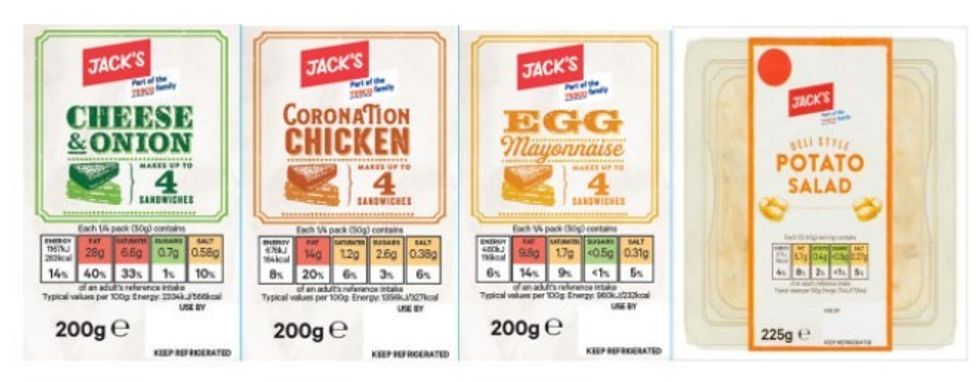Britons have been given an urgent food warning by the Food Standards Agency (FSA).
Those who have a peanut allergy have been urged to avoid consuming foods that contain or may contain mustard, mustard powder or mustard flour because they may have been contaminated with peanuts.
Indeed, Britons have been warned that food products sold at supermarkets, convenience stores and restaurants pose a “life-threatening” risk.
Affected products are sold at Aldi, Harvester, Domino’s and more. Since this alert, the recall has been extended.
‘These mustard ingredients can be found in food such as dips, sauces, salads and pre-packed sandwiches’
Aldi
The FSA released a statement detailing what Britons with a peanut allergy should do to stay safe.
The FSA explained: “These mustard ingredients can be found in food such as dips, sauces, salads and pre-packed sandwiches.
“The FSA is urgently working with the relevant Local Authorities, individual businesses and industry to identify which products may be affected.
“We have traced the contaminated mustard ingredients to a producer in India called GT Agro Industries and have identified one company who has supplied these ingredients for use in UK food. There is no evidence other suppliers are affected so far.”
As we try to identify the individual products which may have been contaminated with these mustard ingredients and, because of the severity of some allergic reactions to peanuts, we are taking a precautionary approach so that people with a peanut allergy have up-to-date information about the potential risk and can take action to keep themselves safe.
“If mustard is present in a food, it should be labelled in bold on the packet because it is an allergen itself.
“If there is a risk that mustard could be unintentionally present in food there will be a ‘may contain’ label for mustard.
“If you are eating out, please ask the cafe or restaurant staff if any of their products contain mustard – by law, food businesses must provide this information to customers.
“When we find an individual product is affected, we will issue a specific allergy alert on our website. The UK company affected, FGS Ingredients Ltd, has advised their customers to remove from sale products containing the contaminated mustard ingredients.
“We have asked the industry to review their food supply systems and remove from sale any products that may have contaminated mustard ingredients.”
Director of food policy, Rebecca Sudworth, said: “Those with a peanut allergy should avoid consuming products containing mustard as an ingredient until we identify the individual products affected.
“Parents and carers of children who have a peanut allergy should take care to check the labels of food they buy and, if eating out, or getting a takeaway, ask the restaurant or cafe about foods that might contain mustard.
LATEST DEVELOPMENTS

Several Jack’s products were pulled from shelves over peanut allergy fears
Jack’s
“As soon as we have more information, we will update consumers. As always, we urge people with an allergy to sign up to our allergy alerts, so you can be notified about future allergy recalls.”
Allergy UK explained what an allergic reaction might involve for someone with a peanut allergy.
Britons were told: “Signs and symptoms usually occur within minutes of contact with peanuts, but can also occur up to one hour later. Most allergic reactions are mild but they can also be moderate or severe.
“Anaphylaxis is the most severe form of allergic reaction which can be life-threatening.
“Mild to moderate symptoms include an itchy mouth, tongue and throat, swelling of lips, around the eyes or face, red raised itchy rash (often called nettle rash, hives or urticaria), vomiting, nausea, abdominal pain and diarrhoea, and runny nose and sneezing.”
In other food news, a beef product has been recalled over fears it could cause sickness and diarrhoea, with more than 7 million Britons warned.

